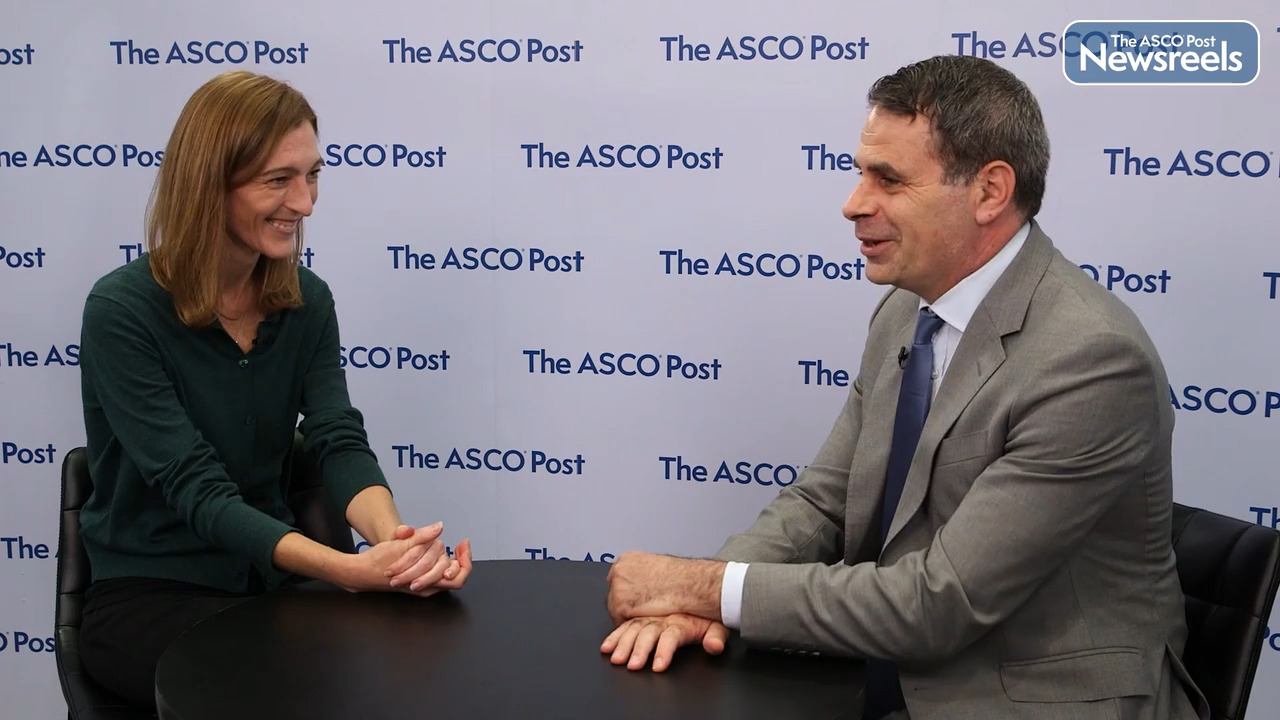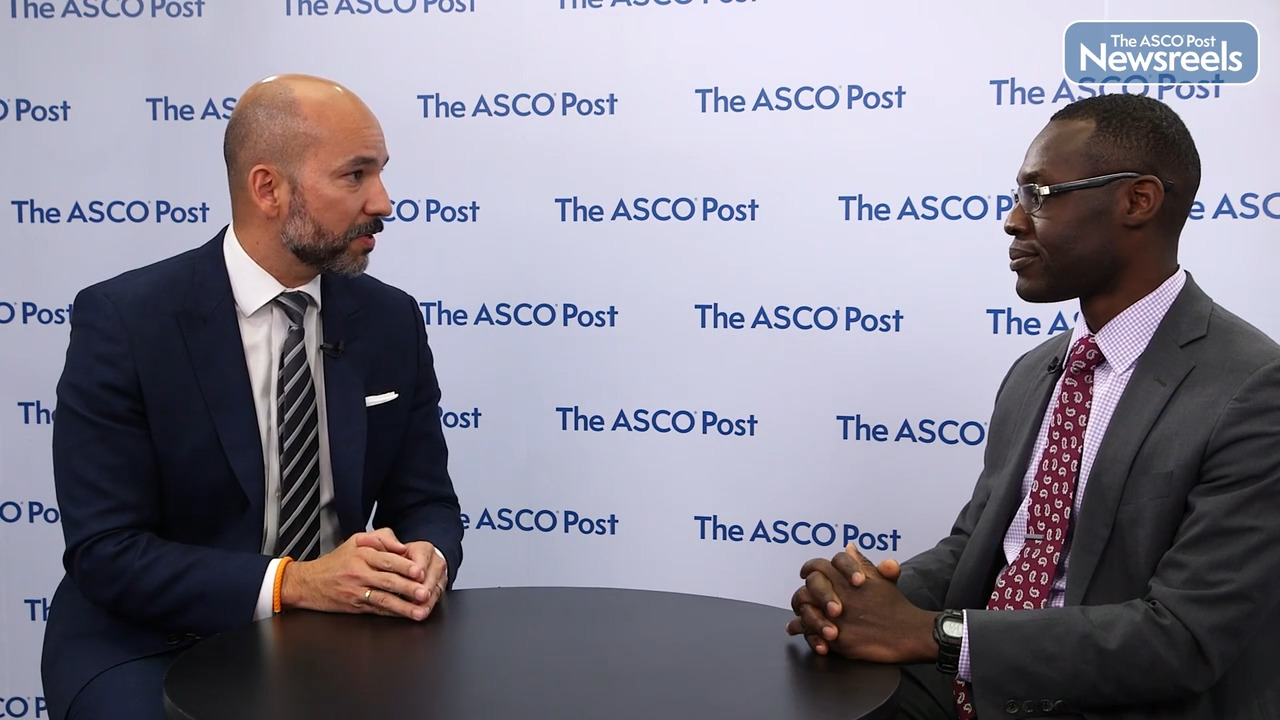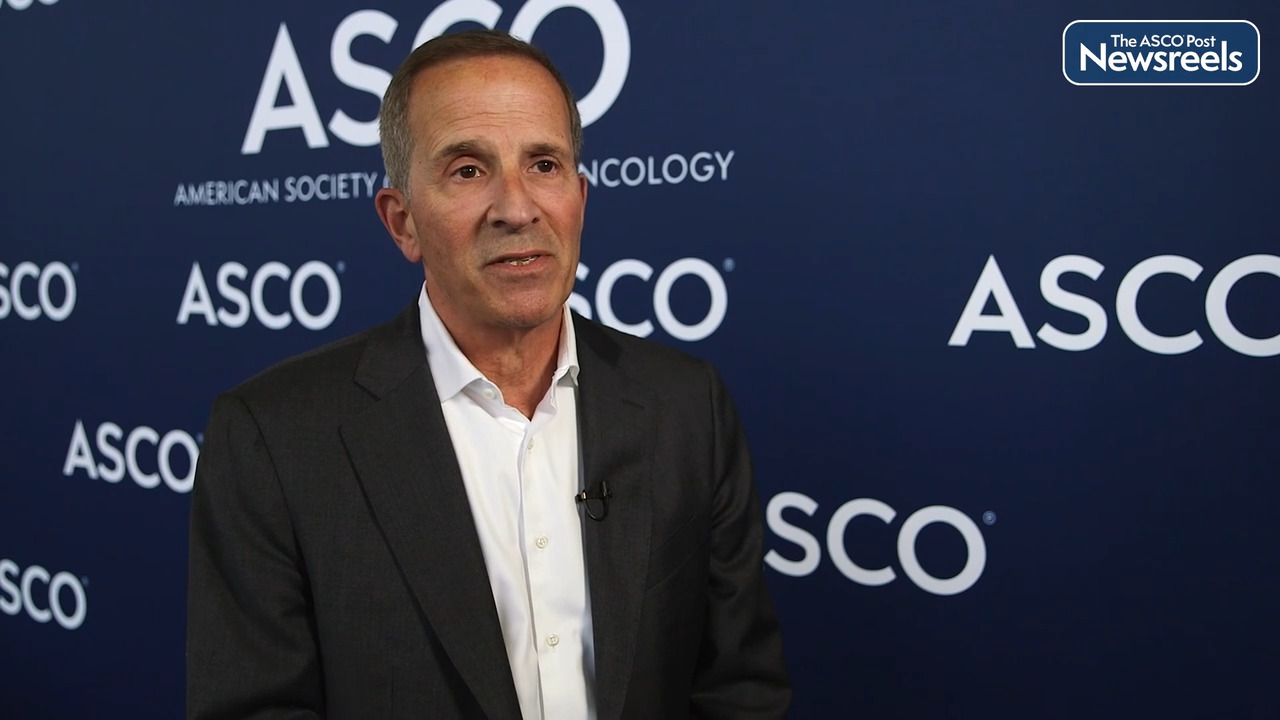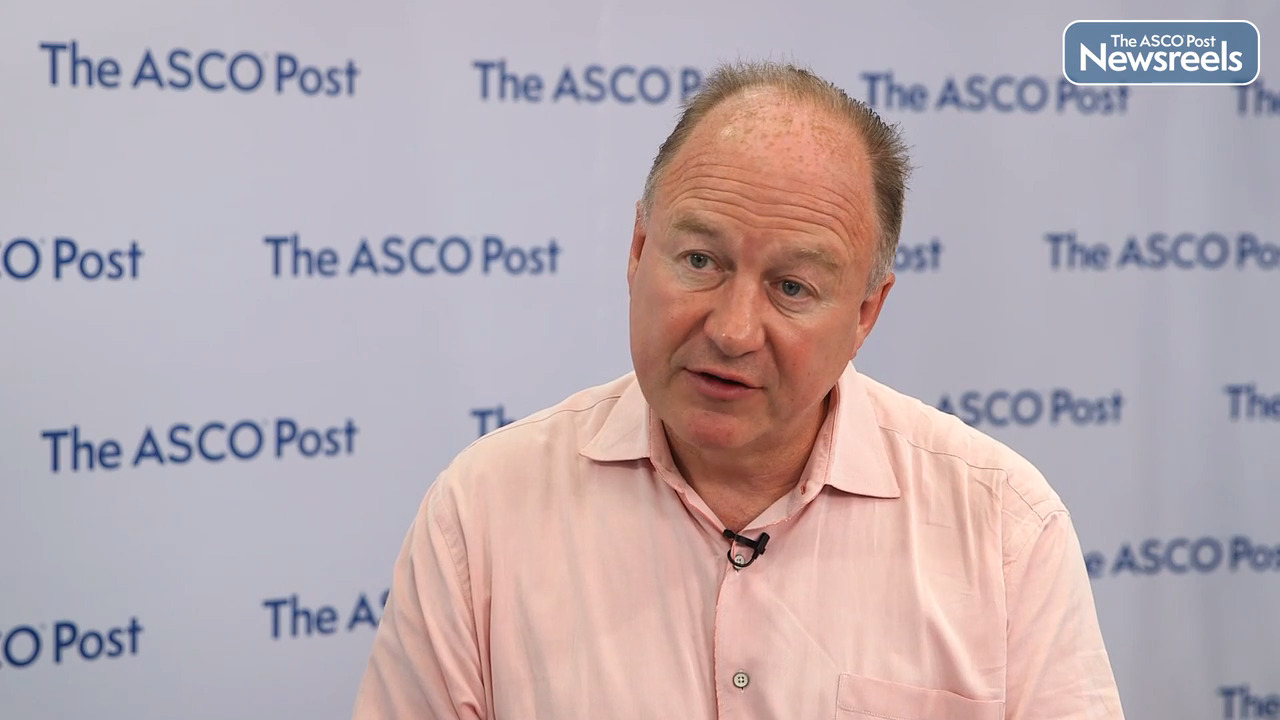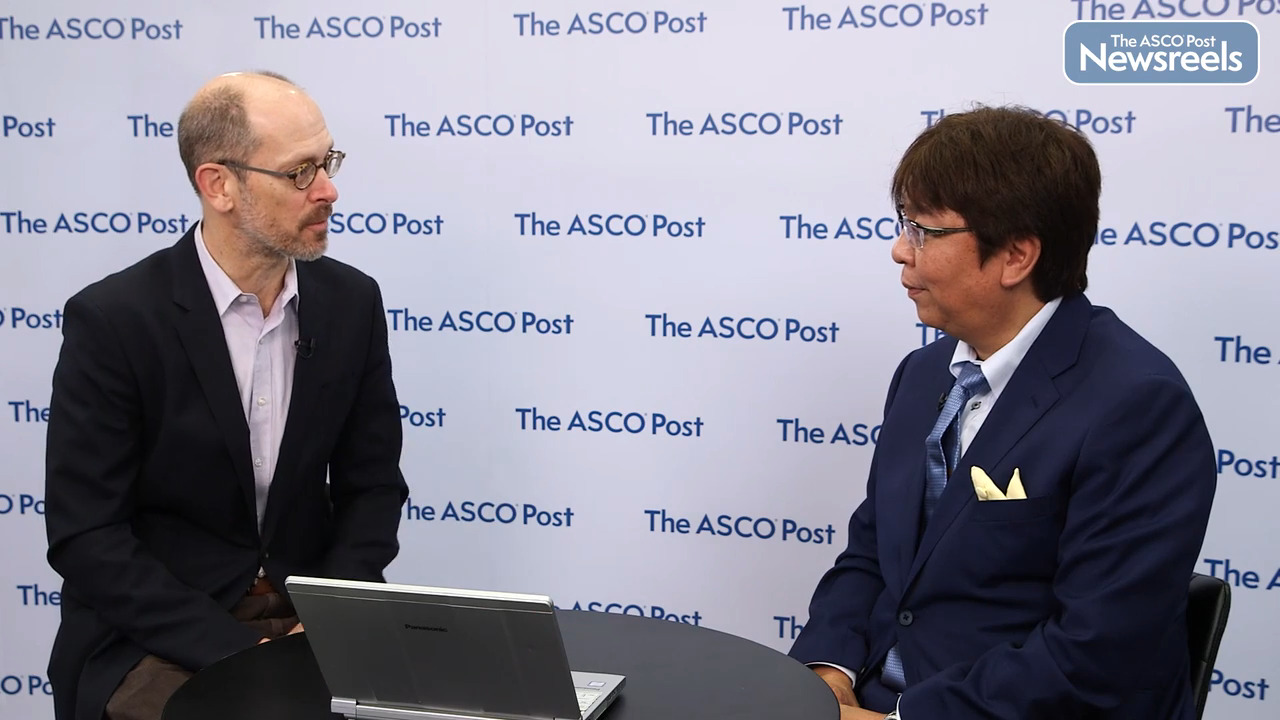Alfredo Carrato, MD, PhD, on Pancreatic Cancer: Nab-Paclitaxel, Gemcitabine, and FOLFOX for Metastatic Disease
2022 ASCO Annual Meeting
Alfredo Carrato, MD, PhD, of Alcala de Henares University in Spain, discusses phase II results from the SEQUENCE trial, which showed that nab-paclitaxel, gemcitabine, and modified FOLFOX showed significantly higher clinical activity than the standard nab-paclitaxel and gemcitabine in the first-line setting of patients with untreated metastatic pancreatic ductal adenocarcinoma (Abstract 4022).
Transcript
Disclaimer: This video transcript has not been proofread or edited and may contain errors.
It's a pleasure for me to show the results of the SEQUENCE trial. The SEQUENCE trial was a randomized phase two trial in pancreatic cancer patients, metastatic ones on first line and we tried to increase the efficacy of the regimens used for treating these patients. So the rational that there were two subtypes of pancreatic cancer, the basal one responded better to Nab-Paclitaxel Gemcitabine and the classical one better to FOLFIRINOX. So as it was impossible to give both regimens at the same time for toxicity issues, we decided to give them sequentially first Nab-Paclitaxel Gemcitabine, and then not FOLFIRINOX, FOLFOX because we thought that the oxaliplatin was the main drug of the combination. And on top of that, we had that Nab-Paclitaxel was given up front and it was depleting this trauma and allowing the drugs to get in touch more efficiently with the tumor cells. So we performed a phase I trial, and we were surprised because we were expecting some neurological toxicity, but no neurologic toxicity appeared and it was safe at full doses and it was published at the European General Cancer two years ago. Then we designed this randomized phase two trial, trying to increase 50% the survival of patients at one year. It was from 35% to 50%, more or less. So with these things in mind, we designed a trial in which 78 patients per arm were needed and the safety results showed that neutropenia and thrombocytopenia were higher in the experimental arm, significantly higher, 47% and 26% and the efficacy at 12 months hypothesis was met. We found that 55.5% of patients were alive at one year in the experimental arm and only 35% in the control arm, which was Nab-Paclitaxel and gem without FOLFOX. So we looked for other efficacy parameters, like time to progression free survival, overall survival, and all of them were positive. In favor of the experimental arm. We reached a median overall survival of 13.2 months versus 9.5 months in the control arm. The hazard ratio was lower to 0.65 and this was real good surprise because we have discovered a new treatment option for our patients and pancreatic cancer patients have few good news. In the last 20 years, just two trials demonstrated an increase in efficacy rates. One of them was the Nab-Paclitaxel Gemcitabine and now against this regimen, we have demonstrated a superiority in efficacy. So we are happy about that and because our patients will live longer and have another option for treatment. This is only for a core zero and one patients, it's only for well fit patients, not for performance status, middle, core two, or very old patients but when you have these patients, this regimen provides excellent results.
Related Videos
The ASCO Post Staff
Courtney D. DiNardo, MD, MSCE, of The University of Texas MD Anderson Cancer Center, and Stéphane de Botton, MD, PhD, of Institut Gustave Roussy, discuss phase III findings from the IDHENTIFY trial, which showed that mutational burden and co-mutational profiles differed between patients with relapsed or refractory acute myeloid leukemia that exhibited IDH2-R140 and IDH2-R172 mutations. Enasidenib improved survival outcomes for patients with IDH2-R172 mutations: median overall survival and 1-year survival rates were approximately double those in the conventional care arm (Abstract 7005).
The ASCO Post Staff
Gilberto de Lima Lopes, Jr, MD, MBA, of Sylvester Comprehensive Cancer Center at the University of Miami, and Oladimeji Akinboro, MD, MPH, of the U.S. Food and Drug Administration (FDA), discuss a data analysis, which suggests that most subgroups of patients with advanced non–small cell lung cancer with a PD-L1 score of 50% or greater who are receiving FDA-approved chemotherapy/immunotherapy regimens may have overall survival outcomes comparable to or better than immunotherapy-alone regimens (Abstract 9000).
The ASCO Post Staff
Neal D. Shore, MD, of the Carolina Urologic Research Center, discusses his study findings, showing that germline genetic testing influenced care for patients with prostate cancer. Men whose genetic test was positive for a pathogenic germline variant received more recommendations for changes to follow-up and treatment, and for testing and counseling of relatives, than did patients with negative or uncertain test results (Abstract 10500).
Paul G. Richardson, MD, of Dana-Farber Cancer Institute, discusses phase III findings from the DETERMINATION trial, which showed that, for patients with newly diagnosed multiple myeloma, lenalidomide, bortezomib, and dexamethasone (RVd) with or without autologous stem cell transplant (ASCT) and lenalidomide maintenance to disease progression resulted in the longest median progression-free survival reported for each approach, and a highly significant difference in progression-free survival in favor of early transplant. While overall response rates were similar, rates of MRD favored early transplant also, but toxicity was greater and quality of life was transiently but significantly diminished. No overall survival advantage has been observed to date (Abstract LBA4).
The ASCO Post Staff
Michael J. Overman, MD, of The University of Texas MD Anderson Cancer Center, and Takayuki Yoshino, PhD, MD, of the National Cancer Center Hospital East, Japan, discuss results from the PARADIGM trial, the first prospective study to test the superiority of panitumumab vs bevacizumab in combination with standard doublet first-line chemotherapy for patients with RAS wild-type and left-sided metastatic colorectal cancer. The study showed that panitumumab improved overall survival in combination with mFOLFOX6, which may establish a standard first-line combination regimen for this population (Abstract LBA1).
